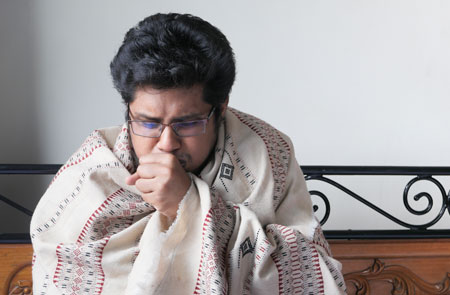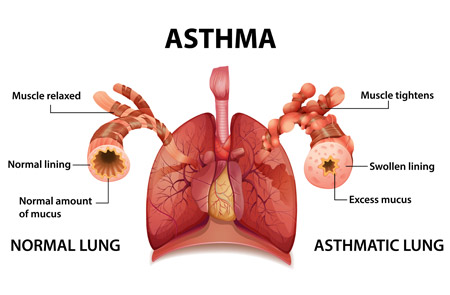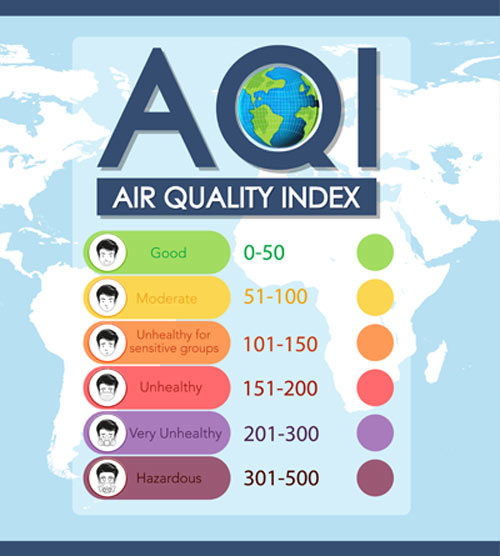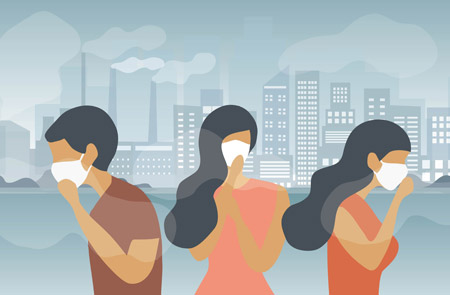Blog Details


Winter is the season to enjoy warm food and festivities. However, the onset of winter brings lots of anxiety and stress for patients who suffer from respiratory diseases. Research shows that cold weather increases the intensity of respiratory symptoms in asthma and allergic rhinitis patients and leads to functional disability and discomfort.
What triggers breathing problems during winter? And what strategies can you adopt to fight breathing problems during winter? Read the post to know more!
Winter causes various changes in the atmosphere. It causes a drop in temperature and leads to cold dry air. Cold dry air is the main culprit that causes various breathing and respiratory problems during winter. The cold dry air lacks moisture and irritates the lungs and airways. Restricted airways cause wheezing and shortness of breath.
In normal conditions, mucous secretion protects and keeps our nasal cavity moist, however, in winters, when our body is attacked by viruses and bacteria, there is an increase in mucous secretion. This clogs the airways and causes coughing, wheezing and breathing problems.

Apart from cold dry air, here are some other factors that can cause or worsen breathing problems during winter.


Here are some common breathing and respiratory problems that get worse during winter.
Here are some effective ways to fight breathing troubles during winter.
Cover yourself
Winter is the time to bundle up and cover yourself when going outside. It is important to protect yourself from cold dry air to avoid respiratory infections and breathing troubles. Wrap a scarf around the neck and wear a fitted mask to cover your nose and mouth. Scarves and other protective layers act as a barrier and do not allow the cold dry air to pass into the lungs and respiratory airways. It keeps you safe and protected during winter.
Breathe through nose
Next is a simple yet effective way to protect yourself from cold dry air. Avoid breathing from your mouth, instead, breathe through your nose only. The nose has a better temperature regulation mechanism than the mouth. It makes the air moist and helps to prevent the ill effects on your lungs.
Hydrate yourself
Maintaining a good level of hydration is key to keeping your respiratory mucus membrane moist and reducing the dryness caused by dry cold air. You can drink warm drinks like honey water and green tea to maintain good hydration level in your body.
Avoid Vigorous physical activity or exercise outside during winter
Winter causes drops in temperature and the breeze of cold air. If you are prone to respiratory diseases or already suffering from breathing problems like asthma and COPD, then it is advised to not stay outside for longer or perform vigorous physical activities during winter.
Take your medication regularly
If you are already suffering from any pre-existing respiratory conditions, it is important to take your prescribed medication regularly. Missing out on medications will increase the chances of worsening breathing problems and may cause other complications too.
Vaccination (Pneumonia vaccine, flu vaccine)
Vaccinations are another great way to boost immunity against various respiratory infections. Flu vaccine and pneumonia vaccines are two common vaccines that help in preventing respiratory infections effectively.
Bonus tips
These are some of the ways in which you can manage your breathing problems during winter. While many of the respiratory illnesses are not curable, proper management, medications and remembering simple strategies like the ones mentioned above can make winters bearable.
© 2026 Healthy Lungs.